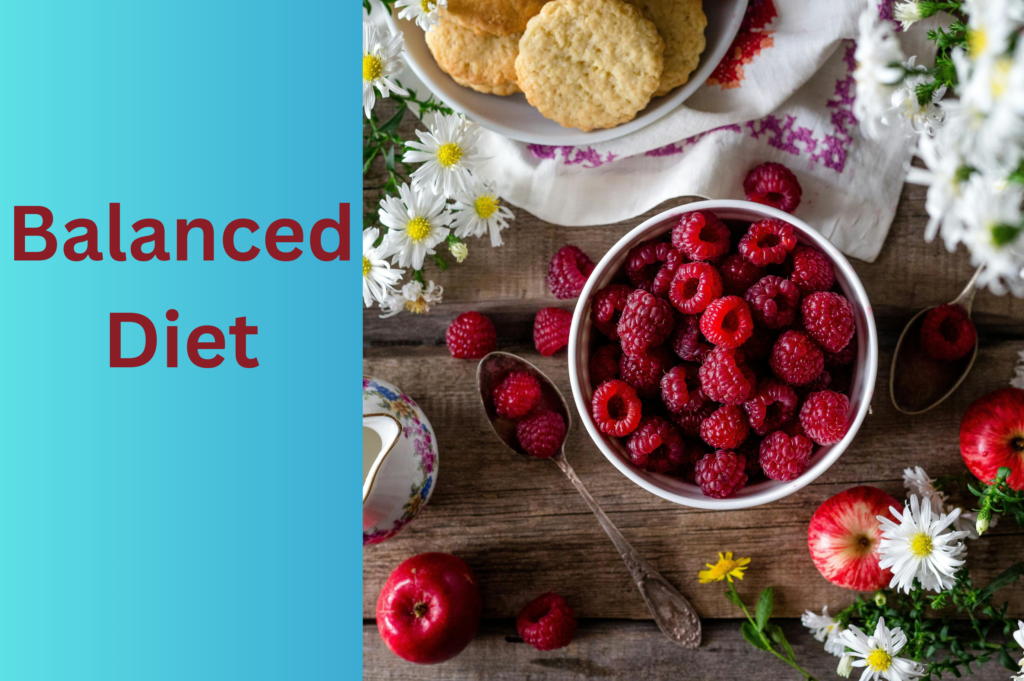Living a healthy lifestyle involves making positive choices that contribute to your overall well-being. Here are some key aspects of a healthy way of living:
Balanced Diet:
Consume an assortment of fruits, vegetables, whole grains, lean proteins, and nourishing fats. Restrict the consumption of processed foods, sugary snacks, and an excess of salt. Maintain proper hydration by ensuring a sufficient intake of water throughout the day.

Engage in regular physical activity, incorporating both aerobic exercises (like walking, jogging, or cycling) and strength training.
Strive to achieve a minimum of 150 minutes of exercise at a moderate intensity level each week, or engage in 75 minutes of vigorous-intensity exercise to meet your fitness goals.
Adequate Sleep:
Strive to get 7-9 hours of restful sleep each night to promote both physical and mental well-being. Establish a regular sleep routine and set up an environment that fosters a conducive atmosphere for quality sleep.
Stress Management:
Incorporate stress-management methods into your routine, including practices like meditation, deep breathing, yoga, or mindfulness.Make sure to set aside moments for activities that bring happiness and relaxation into your life.
Hygiene and Self-Care:
Maintain good personal hygiene to prevent illness and promote overall well-being.
Take time for self-care activities, such as leisure reading, listening to music, or taking a warm bath.
Social Connections:
Cultivate and maintain positive relationships with friends and family.
Foster a support system that can provide emotional and social support.
Avoid Harmful Substances:
Limit or eliminate the consumption of tobacco, alcohol, and recreational drugs.
Be mindful of prescription medications and use them as directed by a healthcare professional.
Regular Health Check-ups:
Schedule regular check-ups with healthcare providers for preventive care.
Monitor and manage any existing health conditions.
Continuous Learning:
Engage in activities that stimulate your mind, such as reading, learning new skills, or pursuing hobbies.
Maintain a Positive Outlook:
Cultivate a positive mindset and practice gratitude.
Focus on the things you can control and find solutions to challenges.
Remember that a healthy lifestyle is a holistic approach that involves addressing physical, mental, and emotional well-being. It’s important to make sustainable changes gradually and tailor them to your individual needs and preferences.

Mindful Eating:
Pay attention to your body’s signals of hunger and fullness, and consume food in moderate portions.
Limit Screen Time:
Minimize prolonged use of screens, particularly prior to bedtime, to enhance the quality of your sleep.
Take breaks during the day to rest your eyes and maintain a healthy balance between screen use and other activities.
Environmental Awareness:
Be conscious of your impact on the environment and make eco-friendly choices when possible.
Connect with nature through activities like hiking, gardening, or simply spending time outdoors.
Practice Gratitude:
Take time each day to reflect on and appreciate the positive aspects of your life.
Cultivate a grateful mindset, which has been linked to improved mental health.
Set Realistic Goals:
Establish achievable short-term and long-term goals for various aspects of your life.
Celebrate small victories and progress, fostering a sense of accomplishment.
Maintain Healthy Relationships:
Foster open and candid communication with the people in your life.Resolve conflicts in a constructive manner and surround yourself with supportive individuals.
Cognitive Stimulation:
Engage in activities that challenge your brain, such as puzzles, games, or learning a new language.
Stimulating your mind can contribute to cognitive health and prevent mental decline.
Financial Well-being:
Create a budget and manage finances wisely to reduce stress related to money.
Save for the future and prioritize spending on experiences over material possessions.
Sun Safety:
Ensure sun protection by applying sunscreen, dressing in protective clothing, and limiting prolonged exposure to the sun. Vitamin D is essential, but it’s important to balance it with precautions to prevent skin damage.
Continuous Self-Reflection:
Regularly assess your goals, values, and priorities.
Adjust your lifestyle as needed to align with your evolving aspirations and personal growth.
Remember, the key to a healthy lifestyle is finding a balance that works for you. It’s not about perfection but making consistent, positive choices that contribute to your overall well-being. Regularly reassess your habits and be open to adapting your lifestyle to meet your changing needs.
